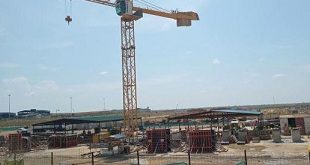“The church was teeming with people, there were lots of dead bodies strewn around and survivors were being asked to help in the digging of mass graves,” Barekye says he was too overwhelmed to help and instead sought shelter elsewhere.
“Among the corpses, I saw a man named Sadam, a Ugandan who was our friend; he used to fry chapatti,” Barekye recalls. “He lay there in a pile of dead bodies”.
He says majority of victims were the Balanda people, an ethnic minority in South Sudan fighting for inclusion.
The Balanda are brown and short in stature, and because of the exclusion they have suffered at the hands of the Dinka-dominated South Sudan government, most of them have taken up arms against the government. “Due to inter-tribal feuds, all Balanda are perceived as rebels. They were killed in large numbers, some were beheaded in their houses.”
At the church where Barekye and other people from the school spent a day, there were tents set up by International Organisation of Migration (IMO), an NGO, supplying water, food, toiletries to refugees, with help from staff of World Food Programme, United Nations High Commission for Refugees (UNHCR), Red Cross providing assistance and heavy patrols of South Sudan security.
Soon one of the clergymen called the Comboni Fathers church, which is also affiliated to the Jesuits church and they were given the all clear to travel to the Comboni centre, a 30 minutes’ drive away.
At Comboni, they were housed in a fenced residential area and were served rice, meat, juice and other foods.
“We spent one week there but it was like a month of relief,” Barekye recalls, “There were bed sheets and for the first time one could afford sound sleep.”
Due to the relative calm they enjoyed at Comboni, they dared to go back to the school at Loyola to check on how things were turning out. Simply out of curiosity, Barekye, his colleague, one of the Fathers and four other people drove off, oblivious of all security threats.
When they arrived, the priest was taking a picture of what remained of the school, when a soldier sprung from nowhere and fired rounds of gunfire in the air. Barekye and everyone scampered for their lives in all directions. Barekye says the soldier was possibly angry because they had a Balanda in their group.
“The soldier was on a motorbike and he told us to run until the next army station and he kept firing bullets in the air,” Barekye says, “It’s like we ran for 10km.”
Shortly after, however, they returned to the school again. This time they had plans to travel to Juba and eventually to Uganda. He says many people think Ugandans were rescued by the UPDF in Juba but a lot of people remained trapped in Wau. He adds that Wau was on fire way before fighting broke out in Juba.
“There are equally so many Ugandans in Wau doing businesses such as welding and trading in many other items who were trapped. They may not have survived like us,” he says.
He says Wau is a big town, bigger than Mbarara and people are setting up businesses and hotels are springing up. Ethiopians and Somalis have joined in constructing big hotels in the town. Barekye says he currently has no plans of going back to South Sudan.
“Those people have deep historical differences; it is always one tribal group against the other. The whole community is armed. In every house there is a gun. If soldiers of South Sudan can loot people’s houses and shops, it shows how far they are in terms of developing.”
Now temporarily working at an NGO, Initiative for Better Health, in Ntinda, Kampala, Barekye says he is not about to take any chances to relive his experience. But he says he knows Ugandans are not about to stop trekking to South Sudan. There are opportunities there, he says.
****
editor@independent.co.ug
 The Independent Uganda: You get the Truth we Pay the Price
The Independent Uganda: You get the Truth we Pay the Price



